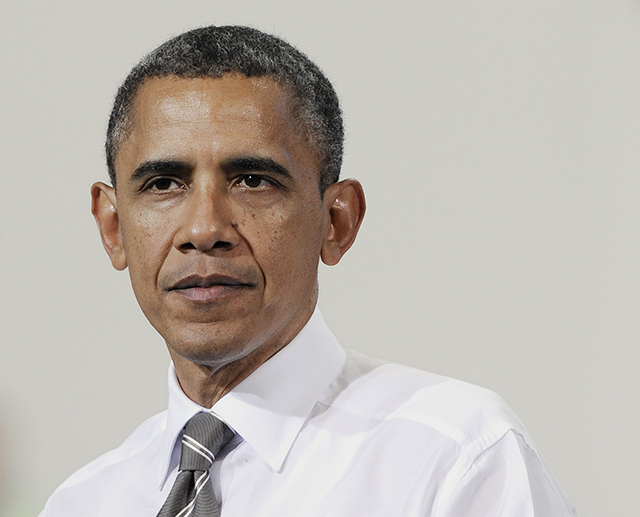Newscom
President Obama this morning laid out a foreign policy roadmap for the remainder of his presidency. However, his audience at the United Nations General Assembly might be excused for finding it confusing.
In Obama’s speech, assertions were followed by contradictions, and top priorities were undermined by caveats. Under leadership such as this, the global standing of the United States has steadily declined over the past four years and remains on a trajectory that shows no sign of slowing down.
President Obama began by illustrating the weakness in his own foreign and defense policy—that it is based on the misconception that “the world is safer than it was five years ago,” as he put it. The President boasted that the United States has shifted its defense posture away from “permanent war,” drawn home troops from Afghanistan and Iraq, worked toward the closing of Guantanamo, reduced the number of drone strikes, and tightened intelligence gathering.
Yet, as Obama acknowledged in his next breath, the world is actually not safer. The past few days have seen horrendous acts of religious violence. The standoff between terrorists and military in Nairobi’s Westgate shopping center is still ongoing, with a death count of at least 72 and likely many more. In Pakistan, churches were targeted by suicide bombers, which killed 81 Christian worshippers. Al-Qaeda has not disappeared but splintered into networks such as the Somalia-based al-Shabaab, and the Middle East continues to be gripped by deep convulsions.
On Syria, the President, whose policy has been passive and weak, castigated the international community for its lack of response to the use of chemical weapons, an issue that has just recently popped up on the front burner at the White House itself. He then defended working with Russia to diffuse the chemical weapons issue, basically allowing Syria’s ally Russia to grab leadership in the Middle East from the United States. “There is no great game to be won,” Obama said. “This is not a zero sum endeavor. We’re no longer in a cold war.” This is clearly not true from the Russian or Syrian perspective.
Obama then proceeded to lay out three core principles of the United States in the Middle East, not bad ones if you can believe them:
- Willingness to use all elements of power, including the military, to defend U.S. interests in the region, which also means energy supplies;
- Working with allies to defeat terrorist networks; and
- Refusing to tolerate weapons of mass destruction, be they chemical or nuclear weapons.
And he added two top priorities for the remainder of his presidential term:
- Dealing with Iran’s nuclear weapons while at the same time allowing Iran the right to a peaceful “nuclear program”; and
- Resolving the Palestinian–Israeli conflict.
Both of these priorities are unlikely to be within Obama’s grasp, having defied several previous Presidents.
This is particularly so because Obama also undermined his own stated principles by saying that the United States is not overly eager to engage in the Middle East or anywhere else in the world. Quite the contrary. After a decade of war in Afghanistan and Iraq, and aware of the hostility those wars engendered, Americans are ready to disengage from the world. The United States has acquired some “hard-earned humility,” Obama said.
At the beginning of his first term, Obama promised a more “humble” foreign policy. Well, he kept that promise. No wonder Obama finds it so hard to lead.
Source material can be found at this site.










